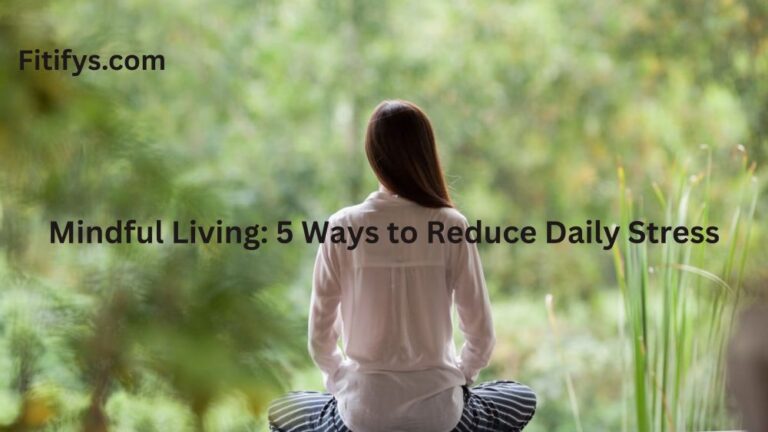How Much Protein Do You Really Need?
If you’ve ever Googled “how much protein should I eat?” you’ve probably gotten about a hundred different answers. Some say 50 grams is fine. Others claim you need your weight in protein (in grams!) every day to build muscle. So… what’s the real deal?
Whether you’re trying to get stronger, lose weight, or just eat a little better, protein plays a big role—but you don’t need to stress or carry around a calculator to figure it all out. Let’s break it down in a way that actually makes sense.
Why Protein Matters
Protein is one of the three main macronutrients (along with carbs and fats), and it’s responsible for:
- Building and repairing muscles
- Supporting your immune system
- Helping you feel full and satisfied
- Maintaining healthy skin, hair, and nails
Basically, if your body were a car, protein would be the parts that help rebuild the engine—not just the fuel.
So, How Much Do You Actually Need?
The answer depends on your goals, activity level, and lifestyle. Let’s simplify it:
➤ The Basic Recommendation:
- The Recommended Dietary Allowance (RDA) for sedentary adults is 0.8 grams per kilogram of body weight (about 0.36 grams per pound).
- For a 150-pound person, that’s roughly 54 grams of protein per day.
➤ But Most of Us Need More:
Especially if you’re:
- Working out regularly
- Trying to build muscle
- Losing weight
- Over 40 (muscle maintenance becomes more important)
A better target for active people is around 1.2 to 2.0 grams per kilogram (or 0.54 to 0.9 grams per pound).
So for a 150-pound active person:
- That’s 81 to 135 grams of protein per day.
Personal Tip: When I started weight training consistently, bumping my protein to about 100g a day (from around 50g) made a noticeable difference in recovery and hunger control.
What Does That Look Like in Real Food?
Here’s how much protein is in some everyday foods:
| Food | Protein |
|---|---|
| 1 egg | 6g |
| 3 oz chicken breast | 26g |
| 1 cup Greek yogurt | 20g |
| 1 scoop whey protein | 20–25g |
| 1/2 cup cooked lentils | 9g |
| 2 tbsp peanut butter | 8g |
| 1 cup cooked quinoa | 8g |
Sample Daily Protein Plan (Approx. 100g):
- Breakfast: Greek yogurt with chia seeds – 20g
- Snack: Protein shake – 25g
- Lunch: Chicken salad – 30g
- Dinner: Lentils and quinoa – 25g
Easy, right?
Protein Timing: Does It Matter?
You’ve probably heard you need to slam a shake right after your workout. That’s partly true—but you don’t need to stress.
What actually matters:
- Spreading protein out over the day helps with absorption and muscle repair.
- Aim for 20–30g per meal, especially after workouts.
If you skip meals and try to eat 100g of protein at dinner, your body won’t use it as efficiently.
Can You Eat Too Much Protein?
Short answer: Not really, unless you have pre-existing kidney issues. For most healthy people, eating more protein than you need won’t hurt—it just may not offer extra benefits.
Just keep in mind:
- Excess protein can add up in calories
- Balance still matters (don’t forget your veggies and healthy fats!)
Plant-Based? You’ve Got Options Too
If you’re vegetarian or vegan, you can absolutely hit your protein goals—it just takes a little planning.
Great plant-based protein sources:
- Lentils, beans, chickpeas
- Tofu and tempeh
- Quinoa, oats
- Nuts and seeds
- Plant-based protein powders
Mix and match to get all essential amino acids over the course of the day.
Final Thoughts
You don’t need to be a bodybuilder to care about protein. Whether your goal is better energy, less snacking, more muscle, or fat loss, getting enough protein can help big time.
Remember:
- Focus on consistent, balanced meals
- Aim for whole food sources first
- Use protein shakes or bars as tools, not crutches
Start simple—track your protein for a few days using an app like MyFitnessPal or just eyeball it using the chart above. You might be surprised at how easy (or hard) it is to hit your goal.
FAQs
Q1: Do I need protein shakes to hit my goal?
A: Not at all. Protein shakes are convenient, especially post-workout or when you’re in a rush, but you can absolutely get enough from real food if you plan your meals right.
Q2: What’s the best time of day to eat protein?
A: Spread it out! Your body uses protein best when it’s eaten throughout the day. Try to get 20–30g per meal, especially after exercise.
Q3: Can I eat too much protein?
A: Most people won’t have issues with high protein intake, but more isn’t always better. Stick to your target based on your activity level and goals, and don’t forget to balance your plate.







